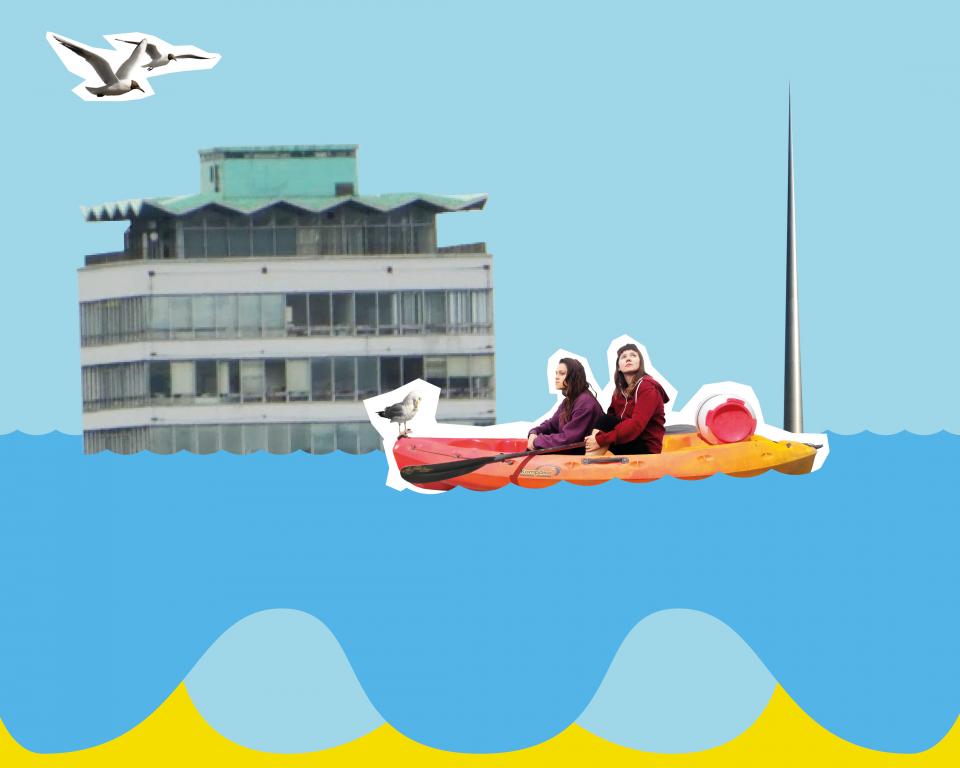Hildegard Ryan and Eva O’Connor’s Afloat does not pull any punches. Instead, it pulls up a proverbial mirror which forces the audience to confront the most insidious barrier to action against climate change: denial.
Best friends Bláthnaid (Eva O’Connor) and Debs (Hildegard Ryan) are on their way to meet in the city centre when the sea pulls back from the shore and returns in a devastating wave, sweeping through Dublin and flooding the streets. Bláthnaid and Debs wake up on the top floor of the SIPTU building with headaches, no memory of how they came to be there, and surrounded by water lapping against rooftops.
With no signs of any other survivors, Bláthnaid and Debs must forage for biscuits in filing cabinets and grapple with their own complicity in allowing the climate crisis to descend into mass destruction. Bláthnaid passes the days creating a miniature Dame Street out of plastic bottles – a tongue-in-cheek commentary on excessive plastic use in Dublin – while Debs struggles between a desire to be optimistic and the pains of a sudden withdrawal from alcohol. A kayak floating in the distance represents their only hope of escaping to higher ground in the mountains, and they must decide whether to risk their lives in the pursuit of safety.
Afloat recognises that although the climate crisis is predominantly caused on a corporate rather than individual level, the burden of fighting for change to be enacted rests on everyone. Hence, in order to effect change we must speak out against those with an interest in denying the problem. Despite a few rocky moments, its full value becomes apparent at the end of the play. O’Connor and Ryan bounce off each other easily, giving life to the nuances of a life-long friendship between two women. A minimal set puts the actors at the centre, alongside two chairs fashioned out of plastic bottles.
There is a sense that Afloat still needs some fine-tuning to make its plot and structure watertight. But this is Fringe, after all – a festival in which work is produced on low budgets for little compensation. The merit of Fringe shows is not in how polished they can be, but how far they can push the limits and get under the audience’s skin, and Afloat is still buzzing under mine.
The day after I see Afloat, hundreds of thousands of people around the world join mass protests calling on governments to take urgent action against the climate crisis. As Dublin fills with schoolchildren and students striking from school and college, the importance of work like Afloat comes into acute focus. It’s a play that is hard to forget and necessary to remember.






